Chemnitz-based start-up authentic.network is launching an ambitious pilot project in Côte d’Ivoire: a digital seal that makes it possible to detect dangerous counterfeit drugs. This is good news not just for hundreds of thousands of malaria patients, but for Africa as a whole.
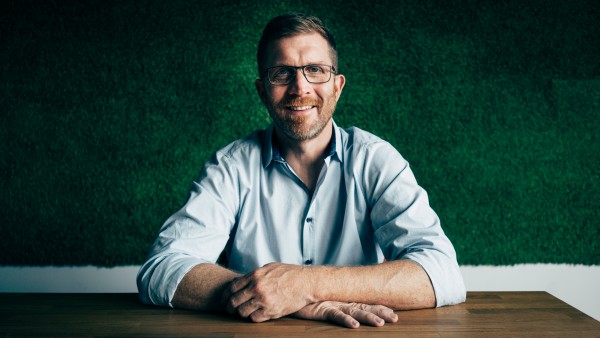
Frank Theeg, CEO of authentic-network, convinces with new technology.
In October 2019, after many gruelling hours spent on the phone by his hotel pool in Côte d’Ivoire engaging in countless conversations, Frank Theeg was already afraid that all had been lost. An intermediary had contacted the Chemnitz-based founder of the authentic.network start-up to confirm that meetings had been scheduled with government representatives of the West African coastal state, but for two whole days there was nothing to be done except wait. And then, all of a sudden, everything went very quickly. Theeg was allowed to present his product in the health ministry: a digital seal that is stuck onto the blister packs containing malaria medication. This would allow anyone – pharmacist or patient – to verify immediately via an app whether the drugs in question are genuine or counterfeit. The African experts were sceptical to begin with. A new kind of technology? What makes this more secure than the usual barcodes or QR codes? After further discussions, Theeg succeeded in winning over the ministry decision-makers with an image – namely an image depicting a telephone with a rotary dial next to a smartphone. This is roughly how the new seal compares with the outdated security systems from the last century. This was not only accepted in Africa but also got on board KfW subsidiary DEG, which is now to co-finance the pilot project with 340,000 euros from the Federal Ministry for Economic Cooperation and Development (BMZ) develoPPP.de programme.
Fight against a life-threatening billion dollar business
Back in his start-up’s Chemnitz office, Frank Theeg is gesturing towards two packets of tablets. In both packets, there is a seal that can only be removed by destroying the packaging. When his smartphone scans the first pack, the app shows a green tick – but for the second packet, it shows a red warning sign, indicating a counterfeit product. Every year, hundreds of thousands of people die of malaria. Almost 90 percent of those infected worldwide live and die in sub-Saharan Africa. The World Health Organization (WHO) estimates that at least one third of drugs against the lethal disease are counterfeit. As Frank Theeg explains: “This pilot project allows us to give a new meaning to our product. It means that we here in Chemnitz are developing the technology to solve a global problem.” The key to this is blockchain technology, an information processing system distributed in a decentralised way via many computers – as opposed to having it on a single server in one location – which does not belong to anyone and therefore cannot be manipulated. Accordingly, the cryptographic codes in the seal are not sent to a central database but rather are compared with a blockchain twin, i.e. there is no chance of forging the highly complex seal with copies. This procedure offers end-to-end solutions for a wide range of products and processes, verifying the authenticity of products as in the malaria project. This is set to dry up the local counterfeit market for malaria medication in Côte d’Ivoire. As Theeg confirms: “The technology can also be transferred to vaccines against COVID-19. As soon as effective vaccines are available, counterfeiters will spring into action as well. Counterfeit drugs are a lethal billion-dollar business. These mass-produced counterfeits, which look astonishingly similar to the real thing, frequently contain inactive substances but occasionally also ingredients that may cause lethal side effects.
Please continue reading below the pictures
At the Q-HUB in Chemnitz, authentic.network's developers sit at their computers and fine-tune the app.
A seal against criminal networks
The idea for the German-African pilot project originated in a meeting organised by Chemnitz German Bundestag member Frank Heinrich, who networked African government representatives with German entrepreneurs. Frank Theeg: “Three months later, someone called from Côte d’Ivoire and an invitation followed shortly after that.” That was just 15 months ago. Since then, the Chemnitz start-up has been working on two fronts. The larger of the two is in Africa. Theeg was forced to learn that coordination processes worked differently in his partners’ country, in that they were less plannable and less goal-driven. However, he has since held a conference in Abidjan with all key local cooperation partners in the country, including police, customs officials, and the pharmacy, pharmaceutical and hospital association. Just a few days ago – in early September 2020 – the relieving news finally arrived that the Ivorian government was to give the official green light for the project, which could now start as early as May of the coming year. With virtually counterfeit-proof seals and an app that anyone could download.
The core of authentic.network is also its workshop, which has a permanent team of just six people. Right next door, four developers sit at their computers fine-tuning the app. In order to develop the app to market maturity, they tested several hundred different smartphones over a two-year period. “Not even the iPhone world has complete functional uniformity”, says head designer Torsten Stein. “Our aim was to test all available devices and to adapt the app accordingly.” This includes ones with trimmed-down Android variants, which are widely used in Africa. The aim is for the technology to work on as many devices as possible when it is launched. In the development stage, the small team had to learn to store massive amounts of data on the seal in such a way that it can be read reliably with any smartphone. The result not only offers high-tech security but the app can also indicate, to within a few metres, where a counterfeit appears, thus making it easier to localise criminal networks. In addition, patients can use the app to report any health problems they experience after taking the tablets, which can point to substandard preparations. In other words, the seal not only provides security but is able to network various healthcare system players with one another and provide them with important information.
Frank Theeg hopes that a successful start will encourage other African states to follow suit. At a meeting, a minister from Niger told him that, in his country, there was a greater chance of buying counterfeit products in pharmacies than original ones. Combatting the lucrative counterfeiting business effectively requires corruption-free registration authorities who source medication from reliable producers and suppliers. It also calls for a secure form of technology, which is what Frank Theeg aims to provide with authentic.network. This could benefit everyone with an interest in combatting lethal diseases like malaria – but also those with an interest in combatting corruption. But above all, it could benefit those patients who currently do not know whether their tablets will provide life-saving assistance or untimely death.
Published on KfW Stories: 27 May 2021.

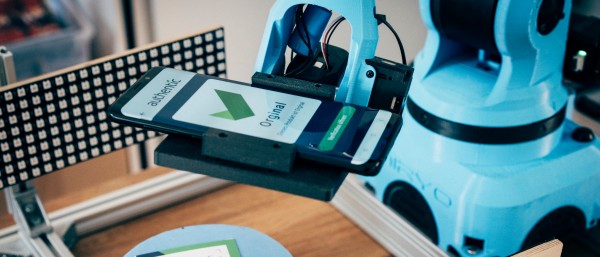
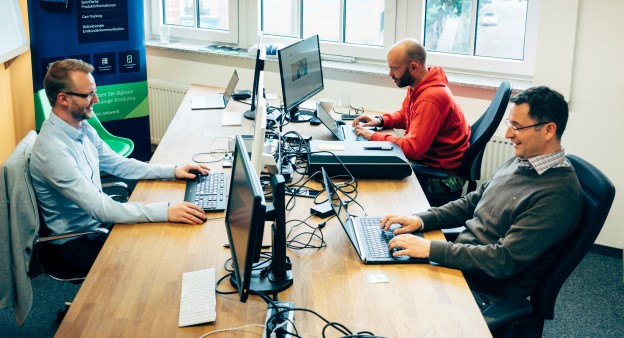
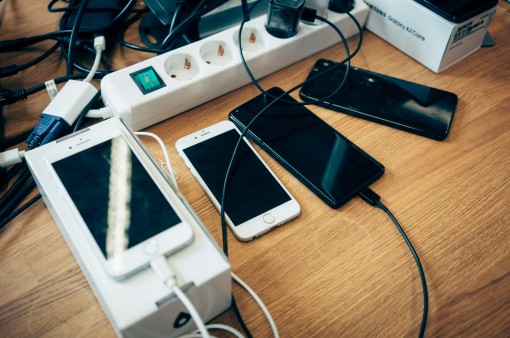
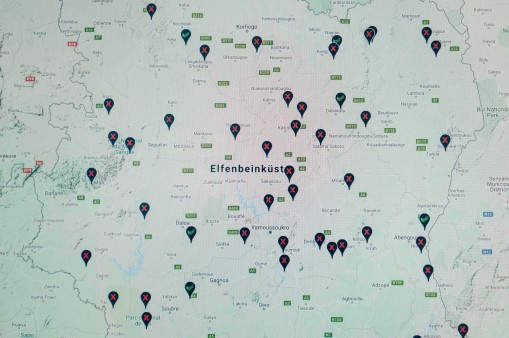
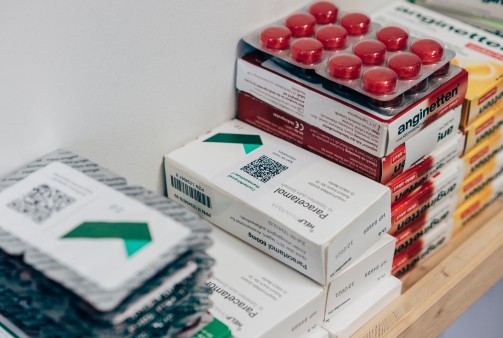




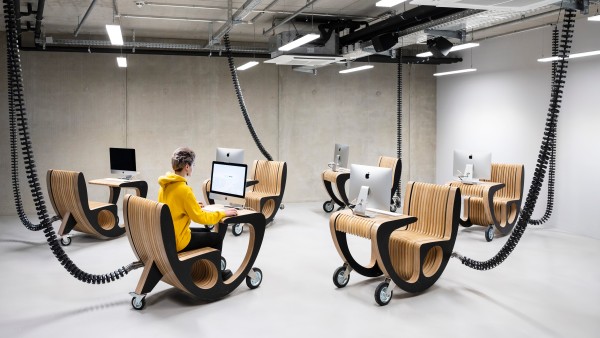
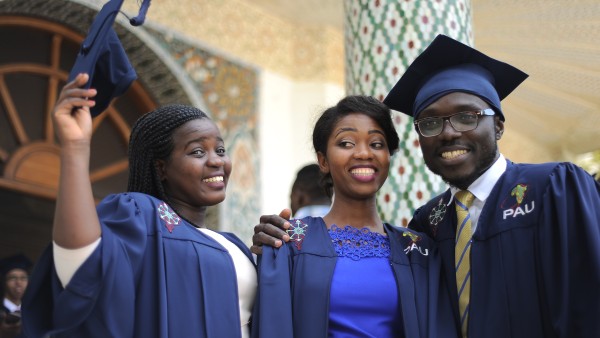
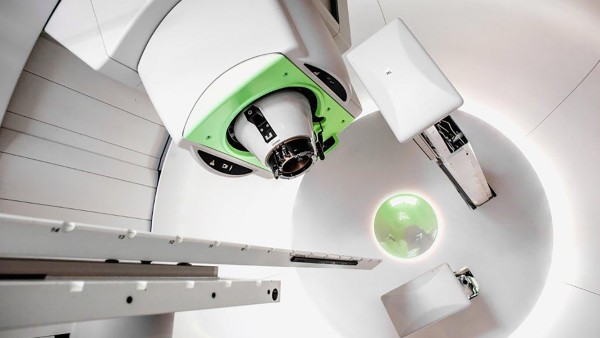
Data protection principles
If you click on one of the following icons, your data will be sent to the corresponding social network.
Privacy information